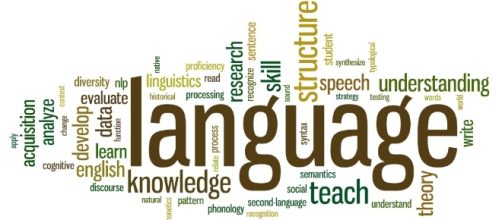I was scrolling through Facebook when I came across a video by #Mayim Bialik titled ““Girl” Vs. “Woman”: Why Language Matters”.” Her words inspired me to write an article about why it really does.
As motivated as I was to write about this, I was also reluctant because as Bialik said, it’s something “a lot of people don’t wanna talk about.” This “don’t wanna talk about it” attitude is certainly not limited to the Language we use to describe women. Really any topic concerning gender and equality renders that same kind of attitude.
Too often are the terms “gender issues” and “women’s issues” used interchangeably and too often are they each conversations that people don’t want to have.
Women or gender
Here is the problem with using the words “gender” and “women” like they mean the same thing in a context concerning societal issues and equality:
When feminists, egalitarians or activists nationwide, use the phrase “women’s issues” in place of “gender issues” they are pushing the listener’s focus away from the actual issue and pointing it towards the idea that it is something for women to address and men to ignore. They are saying ‘listen up women, we need to talk about this problem we are facing” and “hey men, this does not really concern you.”
Referring to issues that impact every member of our society as issues that belong to women makes it seem as though they are conversations that men don’t need to be part of and that's a problem.
It's a problem because a society can't move forward and change if half of it isn't included in conversations about the problems in their society.
Women's issues are men's issues too
It's also a problem because it creates a space wherein men who are involved in the struggles of women whom are fighting for equality, are praised for caring when this should not be the case. Women’s issues are men’s issues too and men should be expected to take part in the fight for equality rather than celebrated for doing the right thing.
The interchangeable use of the words gender and women are only part of the bigger picture where language is used to dictate the ways in which we view the world.
I want to elaborate on Bialik’s reason for why using the word “woman” instead of using the word “girl” to describe women is so important.
She explained that the reason women are so often referred to as ‘girls” is because intentionally or not, “the terms we use to describe women assume a certain structure of power where men are on top and women are on the bottom.”
In the study of language and culture, there is an ongoing debate about whether we created and continue to create language in order to communicate or if language influences culture. I say both. We create language so we can communicate our thoughts and connect with each other but we are also influenced by the language we use. Words have meanings and carry cultural baggage that has an effect on the way we perceive things.
In an article published by The New York Times, the esteemed journalist and activist, #Gloria Steinem writes that “Adjectives are mostly required of the less powerful.
Thus, there are “novelists” and “female novelists,” “African-American doctors” but not “European- American doctors,” “gay soldiers” but not “heterosexual soldiers,” “transgender activists” but not “cisgender activists.”
Steinem goes on to explain that the usual pattern in our society is that “the person with the power takes the noun and the norm while the less powerful requires an adjective.”
Words are so important. They are the primary method of human communication but they are also used to not only assume but establish systems of power and confirm that they remain unchanged.
Using the word 'girl' instead of 'woman' makes it so that we accept and propagate the idea of women being the less powerful in our society the same way that using women's issues in place of gender issues makes it so that men have an excuse not to listen. The words we use have an" impact on our unconscious," as Bialik explained and this impact has social ramifications.

